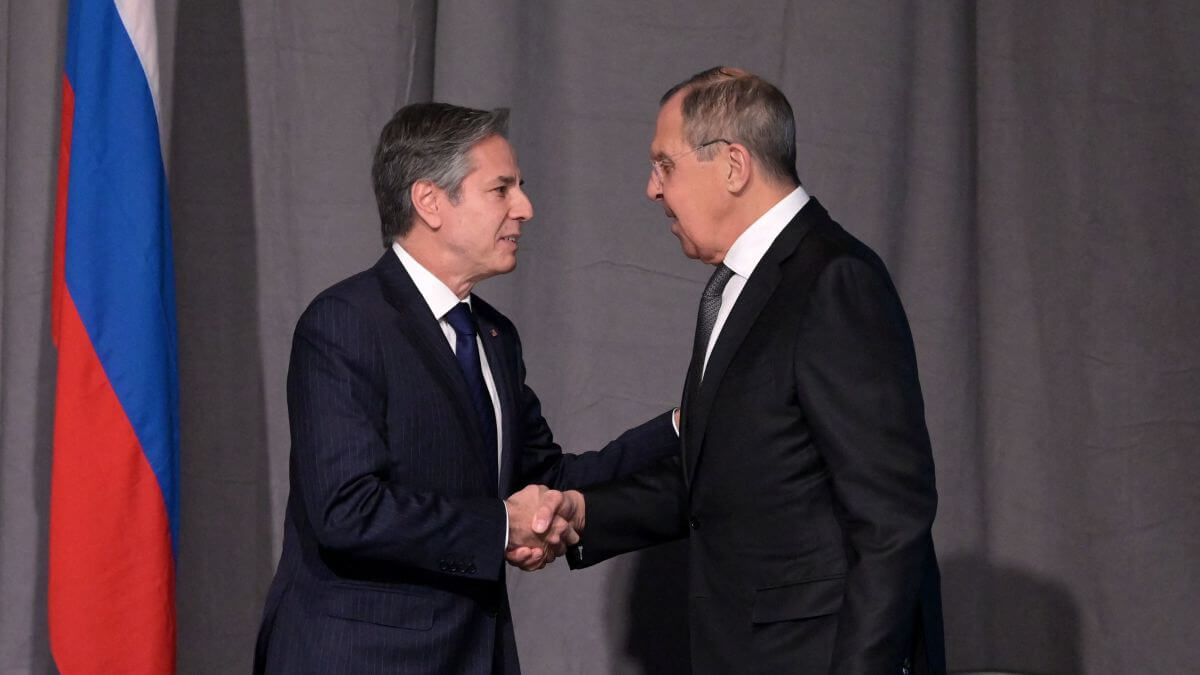On Tuesday, the White House confirmed that United States (US) Secretary of State Antony Blinken will hold talks with his Russian counterpart Sergey Lavrov in Geneva to discuss de-escalation measures regarding the border crisis in Ukraine and address last week’s bilateral engagement between the US and Russia.
In a statement, spokesperson Ned Price said that Secretary Blinken will first travel to Kyiv on January 19 to meet Ukrainian President Volodymyr Zelensky and Foreign Minister Dmytro Kuleba and reaffirm America’s support for Ukrainian sovereignty and territorial integrity and discuss measures to deter Russian aggression along the Ukrainian border. Blinken will then proceed to Berlin on January 20 to meet German Minister for Foreign Affairs Annalena Baerbock and also the Transatlantic Quad to update Baerbock on last week’s diplomatic engagement with Moscow and discuss the readiness of American partners in Europe to impose “severe economic costs on Russia.”
Finally, Blinken will meet Russian Foreign Minister Sergey Lavrov at Geneva to talk about US-Russia bilateral engagement and “urge” Moscow to reduce its troops along the Ukrainian border. Price added that on Tuesday Blinken held a phone call with Lavrov to discuss various diplomatic engagements that took place between Washington and Moscow last week regarding Russian President Vladimir Putin’s security proposal. During the call, Blinken emphasised the importance of “continuing a diplomatic path” in efforts to resolve tensions between Russia and Ukraine as he raised concerns over Moscow’s military aggression towards Ukraine.
During a brief to reporters about Blinken’s travel, a senior State Department official stressed that Putin had created an environment of hostility by amassing 100,000 troops along the Ukrainian border and added that Moscow could launch an attack on Kyiv at any point. The State Department official highlighted that “diplomacy is not dead,” dismissing claims that last week’s talks were in vain. The official, however, added that Washington is uncertain about whether Moscow is “genuinely” interested in diplomacy or these discussions are pretexts to claim that diplomatic efforts were unproductive.

Earlier this week, when asked about further diplomatic contact between the US and Russia, Lavrov told state-owned news agency TASS, “We’re currently waiting for the promised answers in order to continue negotiations,” adding, “We expect to continue these negotiations. It’s a serious issue and you can’t delay the specific agreements on this matter.”
Last week, top diplomats from Russia and the US conducted a bilateral Strategic Stability Dialogue (SSD) and multilateral talks through the North Atlantic Treaty Organisation (NATO) and the Organization for Security and Co-operation in Europe (OSCE). The agenda for all the meetings was Putin’s security proposal to the US and NATO regarding tensions in Ukraine. The diplomatic engagement ended with no progress despite serious exchanges.
Russian officials recently hinted that Moscow is considering military deployment in Cuba or Venezuela as an option to put pressure on Washington. Putin has threatened that Russia is ready to use “military technical measures” if the West does not respond to its security demands that call for NATO to cease its eastern expansion and calls America to halt missile deployment in Europe.

